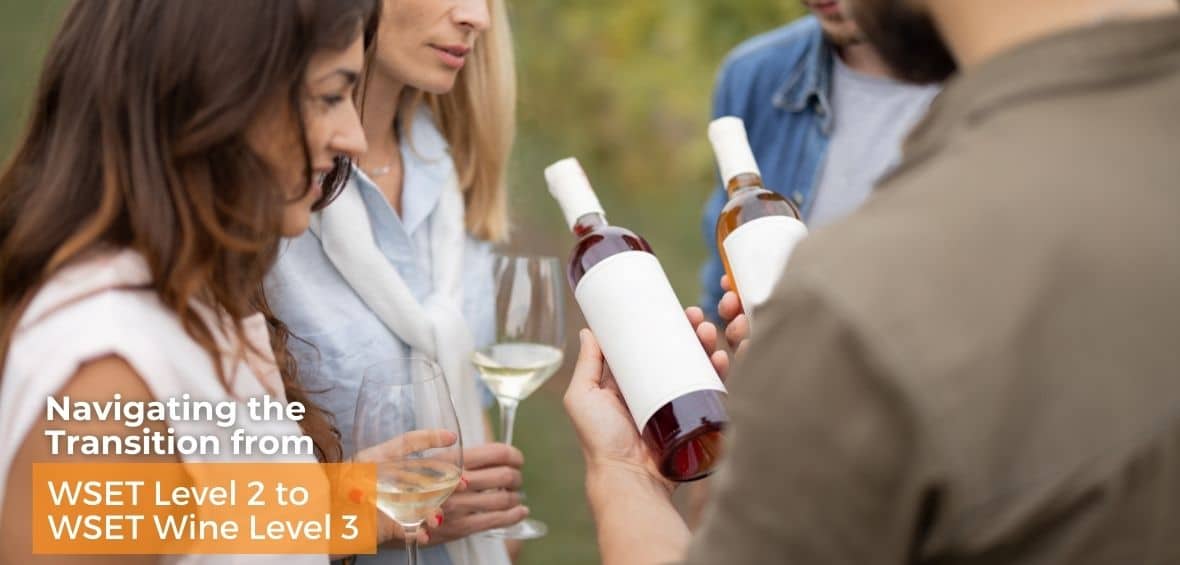The Wine & Spirits Education Trust’s WSET Level 3 book, Wines and Spirits: Understanding Style and Quality, published in 2011, defines the Key Grape Varieties in depth from pages 5-9. We’ve provided highlights from just a few of their descriptions below for your reference:
WHITE GRAPES
CHARDONNAY
“Cool climates, such as Champagne and Chablis, give very steely wines, medium to light in body, with high acidity and apple, pear or green plum fruit notes. More favourable sites, and moderate climate regions, result in more citrus, melon and peach flavoured wines. In warm and hot climates, the fruit character tends towards exotic flavours such as banana, mango and fig. Chardonnay from very hot regions can be very full-bodied, high in alcohol and low in acidity. The fruit character of Chardonnay is rarely very pronounced: it could be described as non-aromatic.”
SAUVIGNON BLANC
“If planted in cool or moderate climate regions on poor soils, it has high acidity and the classic green, herbaceous flavours, often reminiscent of green pepper, grass or nettles. These herbaceous characteristics are usually joined by some fruitiness — typically passion fruit or elderflower. In warm and hot regions, it can fail to develop much aromatic character and just have hints of peach and grapefruit. Oak is sometimes used to give the wines more body and flavour character, particularly in the United States where the oak-aged wines are frequently labelled as Fumé-Blanc.”
RIESLING
“It is a fruity, aromatic grape variety that retains its high acidity. It ripens late, but is very hardy, making it an ideal source for late-harvest wines.” “In cool climates, such as the Mosel, it can have a very fresh grape and apple fruit character, and the high natural acidity is often balanced with some sugar.” “Some Australian Rieslings have a distinct lime fruit character.”
BLACK GRAPES
PINOT NOIR
Younger examples offer “a fruity perfume of raspberries, strawberries or red cherries,” and “soft, light tannins and is seldom deep in colour.” The WSET also points out that Pinots produced outside of Burgundy require “moderate or cool conditions, otherwise the resulting wines have over-ripe, jammy flavours.”
CABERNET SAUVIGNON
“It gives low yields of full-bodied, high-acid, tannic wines, which respond well to oak ageing and develop complexity in the bottle.” Classic flavours described are: “picked blackcurrants (in moderate climates), tending towards black cherry and blackcurrant jam (in warm and hot climates). In the cooler regions, the blackcurrant fruit can be accompanied by notes of green capsicum, mint and cedarwood, which become more accentuated as the wine ages. Warm climate Cabernet Sauvignon can have more of a black cherry, and even black olive, fruit character. ”
MERLOT
Two styles are highlighted: Grapes harvested late that offer “intense purple colour, blackberry and plum fruit, and soft, velvet-textured tannins,” along with full body and high alcohol. The other style sees early harvesting and wines with “medium body and alcohol, but with higher acidity and more of a fresh red fruit character) raspberries, ripe strawberries), and maybe even some vegetal, leafy aromas.”
SYRAH/SHIRAZ
This grape will not ripen properly in cool climates, but in “moderate to warm climates, the tannin levels can be high, and the blackberry fruit can be accompanied by notes of black pepper and sometimes mint. Hot climate Syrah/Shiraz is more full-bodied, with soft tannins and earthy, leathery flavours and spice notes that are more like liquorice and anise.”
PINOT NOIR
Younger examples offer “a fruity perfume of raspberries, strawberries or red cherries,” and “soft, light tannins and is seldom deep in colour.” The WSET also points out that Pinots produced outside of Burgundy require “moderate or cool conditions, otherwise the resulting wines have over-ripe, jammy flavours.”













